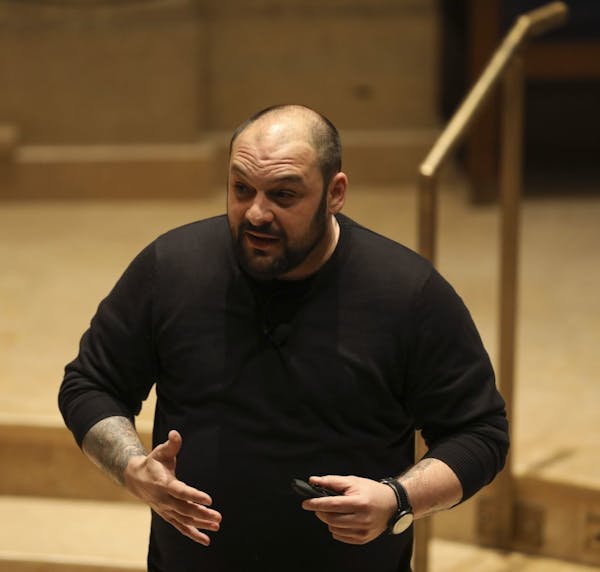Council Member Susan Pha thought it would be simple.
Since the presidential election, Pha watched as anxiety mounted in Brooklyn Park's refugee, immigrant and Muslim communities and said she felt the city should make a unified gesture of support. So she drafted a resolution that declared "support for refugees and immigrants" in Brooklyn Park — one of the state's most diverse cities.
While similar resolutions have passed with little resistance in neighboring cities, Brooklyn Park's was met with push back from other city leaders, who objected to its language and said it lacked resident feedback and meaningful action. The resolution was tabled in a tense February meeting and has triggered six weeks of back-and-forth in community gatherings.
Pha, who came to the United States as a 3-year-old refugee, said she was "a little shocked" when the resolution stalled.
"This [resolution] was seen as controversial," said Pha, the city's first council member of color. "I made it clear that I wasn't going to let it go."
Language debated
A revised version with tweaked wording came back for consideration Monday. The new draft proposed supporting "the rich diversity of our community" rather than "refugees and immigrants." Pha has described it as "watered down," while other city officials praised the language as being more inclusive. Council Member Lisa Jacobson and Mayor Jeff Lunde said that Jewish residents, for instance, felt left out of the original version.
"When you start to name groups, you miss groups," Lunde said.
Yet after an hour of emotional public comment and further debate, council members reverted to the original resolution Monday night and approved it without dissent, sparking applause.
Some residents have criticized the six-week delay and say the hesitation is puzzling given the city's diverse makeup. More than half of Brooklyn Park's 80,000 residents are nonwhite and one in five is foreign born, according to Minnesota Compass, a project led Wilder Research. Others have raised questions about a city's role to make public statements on issues that entail federal policy.
For 22-year-old Maria Barron, the resolution felt like an affirmation of safety. Barron came to the United States when she was 16 and told the City Council about her path to citizenship and her lingering fears.
"I feel so afraid for my family," Barron said Monday night. "I am a citizen, but I have pain in my heart."
Why the wait?
Nearby Brooklyn Center passed a similar resolution quietly and unanimously in December. Council Member April Graves introduced the resolution, which condemned "violence and hate speech" and expressed "solidarity with Muslims and all those targeted for their ethnicity, race, or religion."
"I can't recall anybody being opposed or even concerned about it," Brooklyn Center Mayor Tim Willson said. "We're making a statement. We're not spending taxpayer dollars."
From Richfield to St. Louis Park to Minneapolis, the language of these resolutions varies.
Minneapolis leaders, for example, directly condemned "presidential executive orders on immigration enforcement and refugees" in a February resolution.
St. Louis Park used part of its resolution "supporting all members of the St. Louis Park community" to clarify local policing policy regarding federal immigration laws.
"Some people may say city governments shouldn't be doing this stuff," St. Louis Park Mayor Jake Spano said. "The framework for us speaking out on something like this is right in our charter."
Increasingly, residents are looking to cities to address topics normally seen as national, "high-level issues," Spano said.
In Brooklyn Park, Mayor Lunde said he has received hundreds of calls and messages from concerned residents and has attended 41 community gatherings since February, meeting with churches, mosques and immigrant organizations, among other groups. He said he wanted to table the resolution in February because it merited more community conversation.
Of the 26 residents who commented on the resolution Monday night, two spoke in opposition.
One woman argued that adopting it would perpetuate the "myth" that Brooklyn Park is an intolerant city filled with discrimination.
"That is not the community I live in as a first-generation American," Tanya Simons said.
'Feel-good piece of paper'
Despite voting in favor of the resolution, Council Member Bob Mata said he saw it as a "feel-good piece of paper" that "doesn't do any action."
Coming up with action steps was a key reason for the delay in adopting the resolution, several city officials said.
Staff have proposed a list of actions based on resident feedback, from posting "All are welcome here" signs in city buildings to amending local police policy regarding immigration to reflect current practices.
The council's decision to adopt the resolution comes as a relief to Pha, who said she has already received thank-you messages from residents.
"I think it has put a lot of people's minds at ease," Pha said. "We can't change federal law, but there are a lot of things we can do in the city to show our support."
Hannah Covington • 612-673-4751

Minnesota State Patrol celebrates diverse new class of troopers

Fired Mpls. teacher accuses management of 'cancerous rot'

Jill Biden rallies women, teachers for the Biden-Harris ticket in Bloomington speeches
Neighbors, city officials at odds over Rochester lake dam

